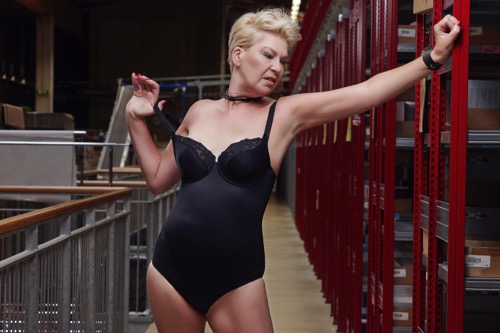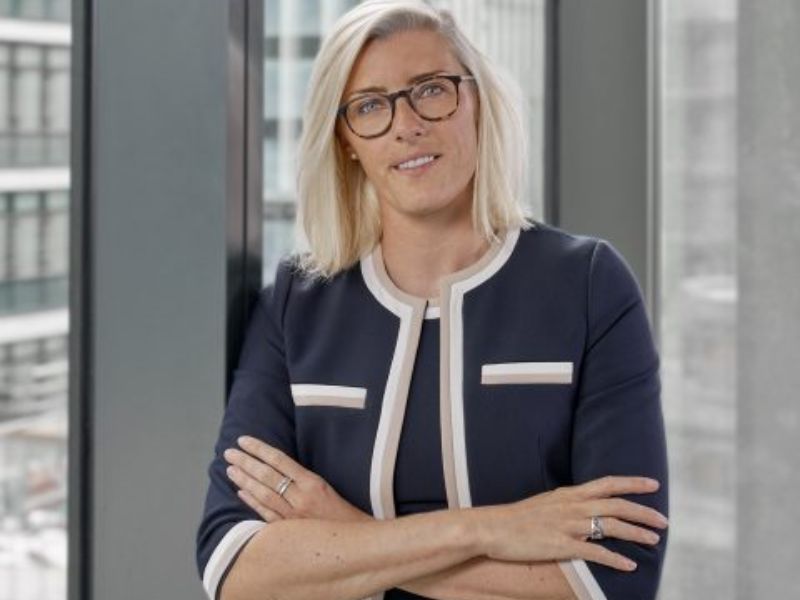October is Breast Cancer Awareness Month and to commemorate it, WeAreTheCity will be profiling a variety of different women who all carry the BRCA1 or 2 gene mutation.
These mutations give the carrier a 75 per cent chance of developing breast or ovarian cancers. It is a hereditary gene, which can be passed down through the male line, as well as the female.
Angelina Jolie famously had this surgery a couple of years ago but the National Hereditary Breast Cancer Helpline say that the message still hasn’t really filtered down to the public yet.
One in 200 people carry a fault in a high risk gene that predisposes them to an increased risk of developing breast, ovarian or prostate cancer.
The hope from these articles is to give a spotlight to these incredible women and to raise awareness of the BRCA gene mutations.
Lou Rowe, 53, is married and has a 28-year-old son.
She loves holidays, reading and life in general. She also has two Samoyed dogs which keep her fit.
Her grandfather was a General in WW1 and her great uncle is the famous travel writer Patrick Leigh Fermor.
How did you find out that you had the BRCA gene?
After my aunt was diagnosed with breast cancer, she tested positive for the BRCA 2 gene mutation. Having already lost both sisters to breast cancer, she wasn’t surprised.
However, this was in 2003 and I decided not to get tested, as there was no plan of action if you did prove to be a carrier. But a year later, I also was diagnosed with breast cancer – I was 40.
I remember one doctor saying, ‘If you don’t test positive for the BRCA 2 gene mutation we’d be surprised and worried.’
Consequently I did test positive.
How have you coped with the challenges that you’ve faced since?
Since having my initial double mastectomy, I’ve undergone four operations as my ‘naughty boob’ (the one I had cancer in) rejected the implant. It took two years before it eventually accepted an expander.
Obviously, each operation causes you physical and mental pain and restricts you from driving, lifting, and even walking two energetic dogs.
But you get through it, because you have no choice.
What support have you received? Do you have a strong support network of friends, family etc. or have you been supported by other networks?
Luckily I have a supportive husband – although his cooking skills leave a lot to be desired!
I have a great circle of wonderful friends, but in another breath, they don’t really know what you’re going through. However, they all supported and applauded my decision. Many said I was brave, but to have done nothing would have been brave yet foolhardy.
And please god, do NOT think of a double mastectomy as a radical boob job. I know I may not need to wear a bra, but to compare to what I’ve undertaken to a boob lift is ridiculous.
Angelina Jolie famously had risk-reducing surgery – how important was it that she told the world?
Angelina is truly amazing and inspiration!
Everyone has had a look at her new boobs and thought, ‘Wow.’ When my surgery was initially discussed in 2012 and I was talked through what the surgeons would do I said: ‘You’re going to be performing the same surgery on me as Angelina had!’ ‘Yes,’ they said.
Angelina is incredibly beautiful, if she can forfeit her boobs, so can anyone.
It doesn’t affect her beauty whatsoever.
How important is it for people to see women who’ve had mastectomies in the public domain?
It certainly shouldn’t be a taboo subject! The more women who can show what they’ve done, and be proud of their decisions, the better.
What do you hope to achieve from the campaign?
Greater awareness that information is power.
If you have a long line of women in your family with breast or ovarian cancer, you should think about getting tested for the BRCA genes mutation. If you decide that you don’t want to undergo the surgery you should be checked by ultra-sound or mammogram screening yearly.
Prevention will always be better than cure.
What else do you think could be done to raise awareness of the BRCA genes? Should the government/NHS be doing more?
I think anyone who is diagnosed with breast cancer, when there is a history of cancer in the family, should immediately be tested for BRCA. If the gene is present, they should be advised to have a double mastectomy.
By having my double mastectomy, I reduced my chances of the cancer returning from 80 per cent to two per cent. You could say I had life-saving surgery.
Of course the Government could do more, by creating awareness of women’s options.
It’s cheaper to have preventative surgery than treat cancer.
How can other people worried about the BRCA genes get the help and support they need?
Speak to your local genetics unit, get tested and decide what’s best for you.
Obviously you can also always phone up The Hereditary Breast Cancer Helpline.
Do you have any advice for anyone going through a similar thing?
You’re not defined by your boobs!
IF there is a strong family history of breast or ovarian cancer, you should seek to find out if you carry the BRCA gene mutation.
Having had breast cancer, I assure you preventative surgery is an easier option both mentally and physically. If I was offered the surgery when I was 30, knowing what I know now, I would be throwing myself under the surgeon’s scalpel.
I lost my aunt when she was 37, my darling mother at 61 and my beautiful aunt this year and all to breast cancer, and all because of the BRCA gene mutation.
My life is worth more to me than my boobs.’
Anita Care have sponsored the National Hereditary Breast Cancer helpline to produce a journal featuring twelve real women who have had risk reducing mastectomies. The journal will be on sale from 1 October 2017, priced at £9.99 with all proceeds going to the helpline.
You can purchase the journal here.









